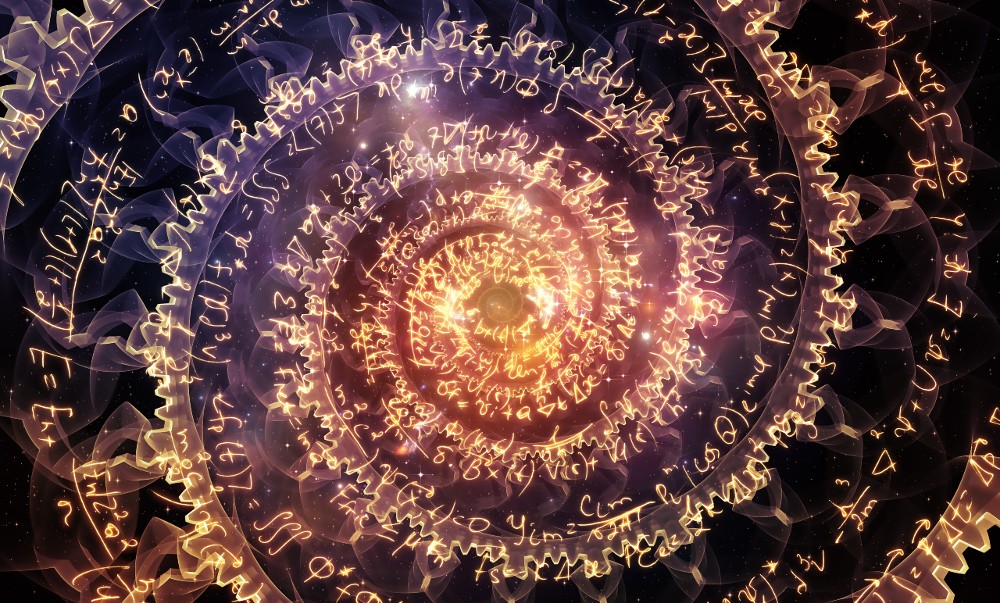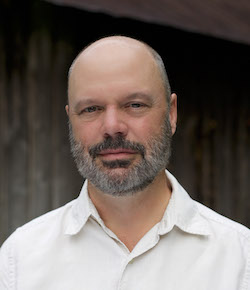
It’s Kind of the Same Discussion
Maybe I was naïve back in the day. Perhaps I had unrealistic expectations. But if someone came to my door to talk religion, I’d invite them in.
There were rules, of course. I’d make deal: they would get five minutes to talk without interruption, and then I’d get five minutes to talk without interruption. Sometimes I had to remind them of the second half of that deal.
Once when I was Baptist living in a very Mormon city in Utah, a Jehovah’s Witness came to my door. He talked for his allotted five minutes and very quickly got to his main gripe with mainstream Christianity: the Trinity.
The Trinity is a mystery, he said, and then pointed out several Bible verses that suggest that it could not possibly be true. Of course, his Bible was translated a little differently from mine and was skewed away from Trinitarian language. But it led to an interesting discussion of theology, linguistics, and passages of scripture that implied three persons of God without denying that only one God exists.
Truth Beyond Understanding
A couple weeks ago we looked briefly at the historical debate about the Trinity, and how the word isn’t in the Bible but the concept certainly is. The nature of the Trinity was a hotly contested issue in the third and fourth centuries (and beyond) — less so for its validity than for its details.
This was mostly an extra-biblical discussion (Hebrew and Greek scriptures never go into detail about how exactly the Father, Son, and Spirit relate to each other). Human beings have a remarkable desire to develop a systematic theology out of a very unsystematic revelation.
In any case, the bigger issue regarding the Trinity — and one that I pointed out that day long ago in Utah — is that if we can understand and explain God in detail, then he probably isn’t God. Finite minds can’t comprehend infinite truth. If we expect otherwise, we are bringing God down to our level.
Some may see that as a copout. And it’s true that if we simply chalk everything we don’t understand up to “infinite mystery,” we aren’t really engaging with truth reasonably. There are a lot of things we should actually try to understand rather than accepting them blindly.
But acknowledging the threefold nature of God is not blind acceptance. It’s rooted in experience, in historical encounters with God, Jesus, and the Holy Spirit that real people actually had (and still do). They wrote about those encounters in theological terms, and I believe they were guided in their understanding.
But there’s a huge difference between inspiration and omniscience. Biblical writers encountered God in ways that were meaningful to them. They were not given an entire blueprint of his nature. That kind of download would short-circuit a finite brain.
The Religious Argument of Your Life
That gets to the heart of why most of today’s religious debates are unproductive. Skeptics are not asking us for a logical or coherent worldview. We’ve got that, and it isn’t enough for them. They are demanding complete explanations that answer all questions. And we can’t give them that.
That shouldn’t bother us. Again, if a finite mind can fully explain an infinite God, something’s wrong. What we’re explaining isn’t actually God.
But to a skeptic, our lack of omniscience means we lose the argument. (Of course, skeptics kind of ignore the fact that they don’t have exhaustive explanations that answer all questions either.) If we’re ever going to make any progress or have any influence, we have to change the nature of the debate.
How do we do that? For one thing, we might want to stop trying to explain everything and get comfortable with saying “I don’t know” every once in a while.
But there are some things we do know, and we should be pretty vocal about them. Most of us have experienced enough answers to prayer and divine “coincidences” that they have stopped being coincidences. We have testimonies of divine power and provision. Telling those stories is powerful.
The skeptic will still demand proof, but even if the only proof we can point to is a radically changed life, that’s still quite a lot — and substantially more than most skeptics can claim.
While many Christians are alarmed at the ever-increasing anti-Christian rhetoric flying around, I’m actually encouraged. The more skeptics desperately try to point out all the ways that nothing has changed in our lives, that we are ignorant and superstitious, and that we are even more flawed than those around us, the more opportunities we have to live in defiance of that unflattering portrait.
We can openly admit our flaws — the gospel exists for very flawed people (i.e., everyone)—but we can also live with radical hope, joy, and love. At times we will have occasion to demonstrate the wisdom and power of God even more directly.
In fact, we can actually prove the difference the gospel has made for us by . . . well, being different. The best way to point to an unexplainable God is by being unexplainable.
Truly, that’s all the proof anyone needs.


